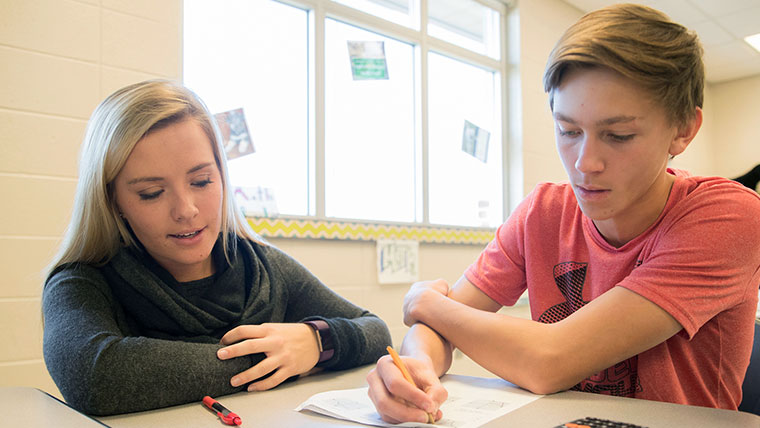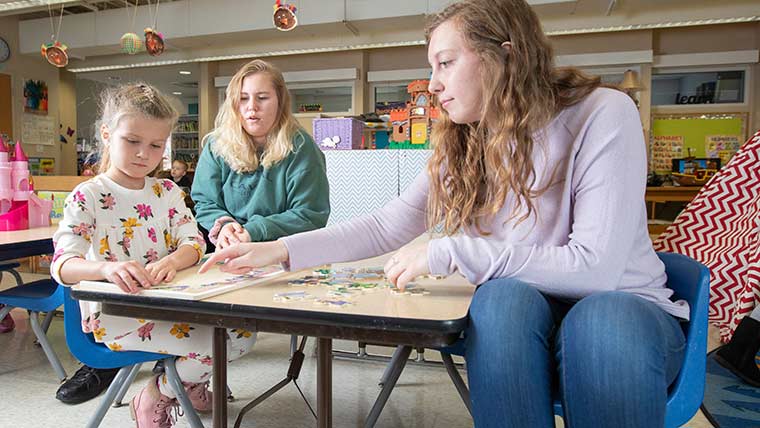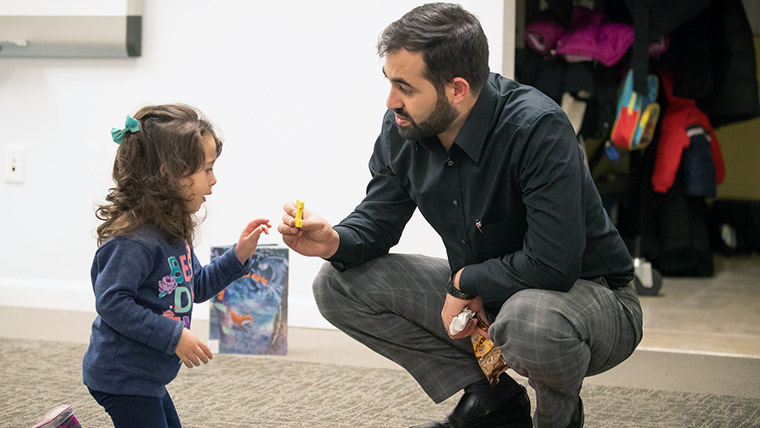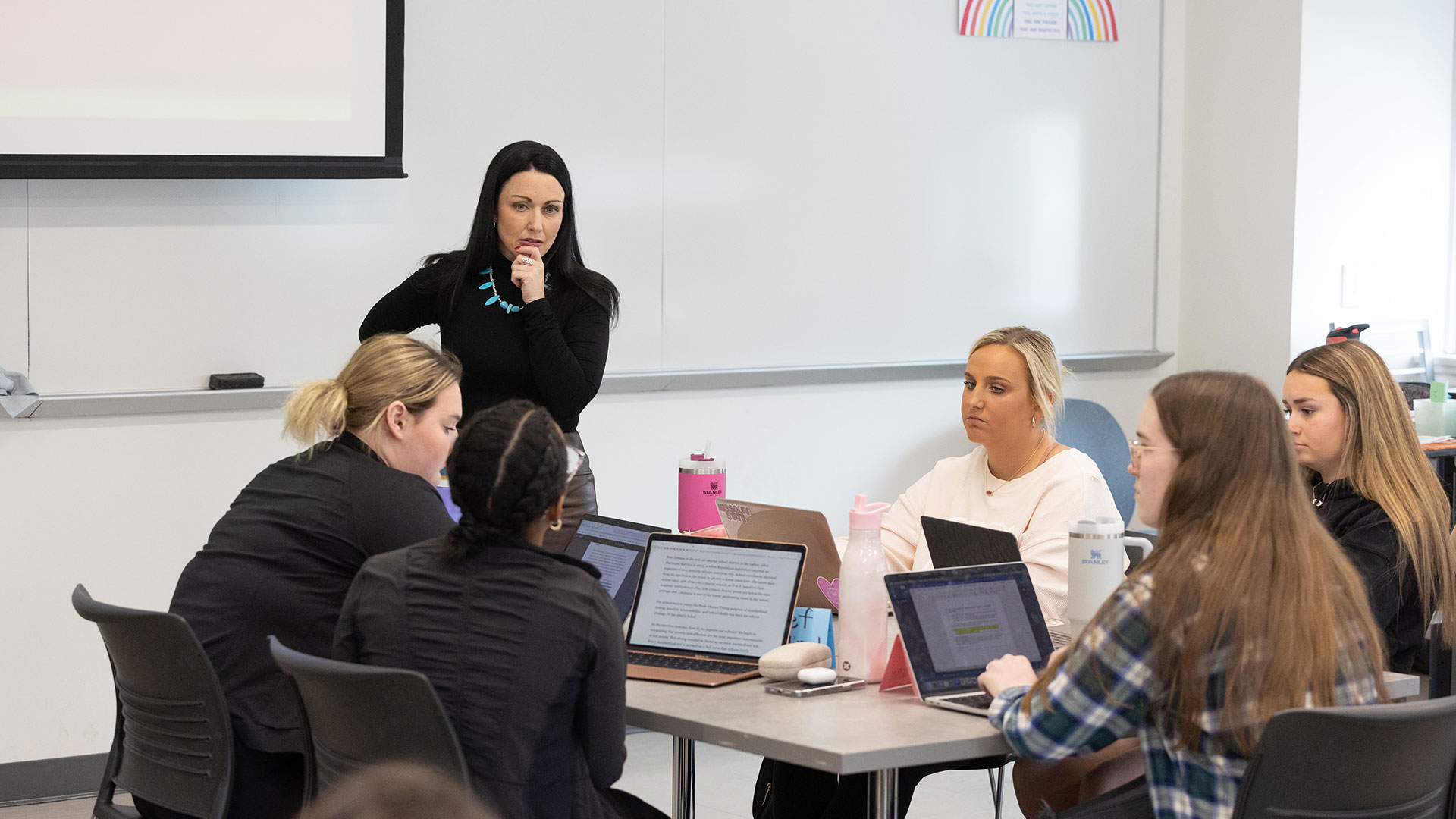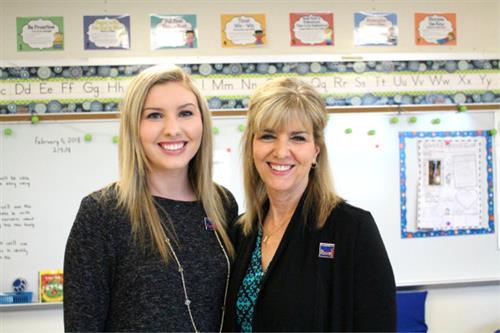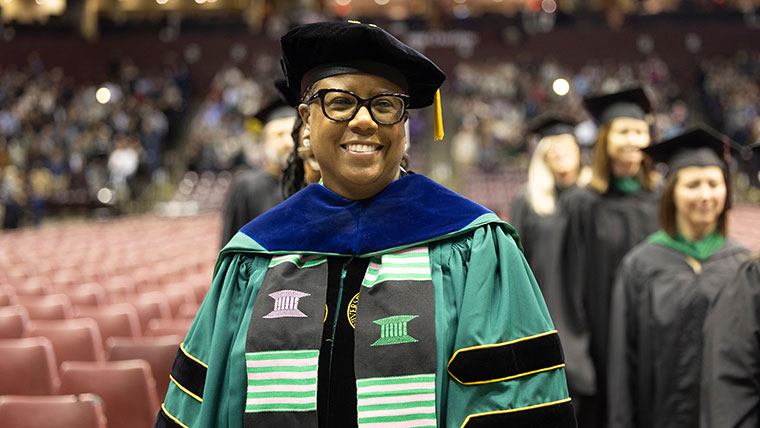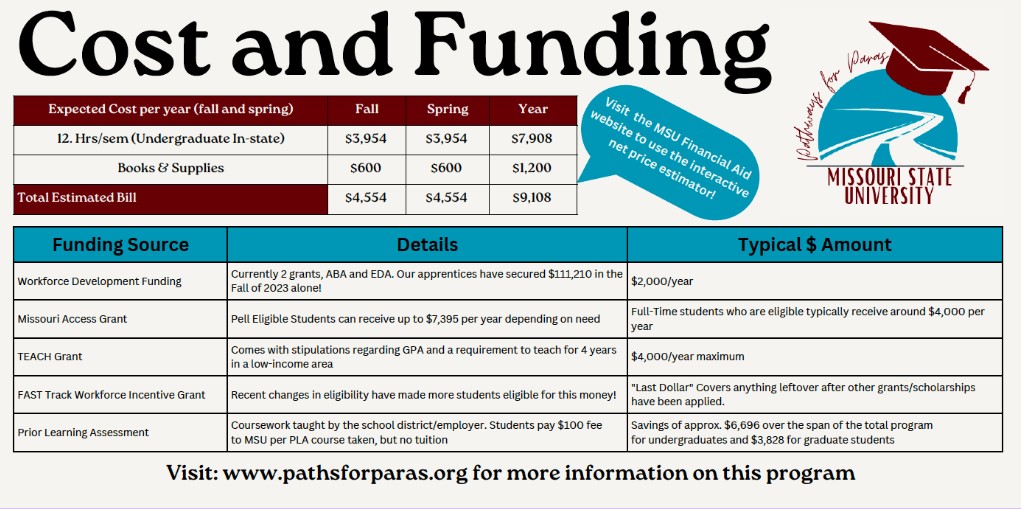Apprenticeship Roadmap
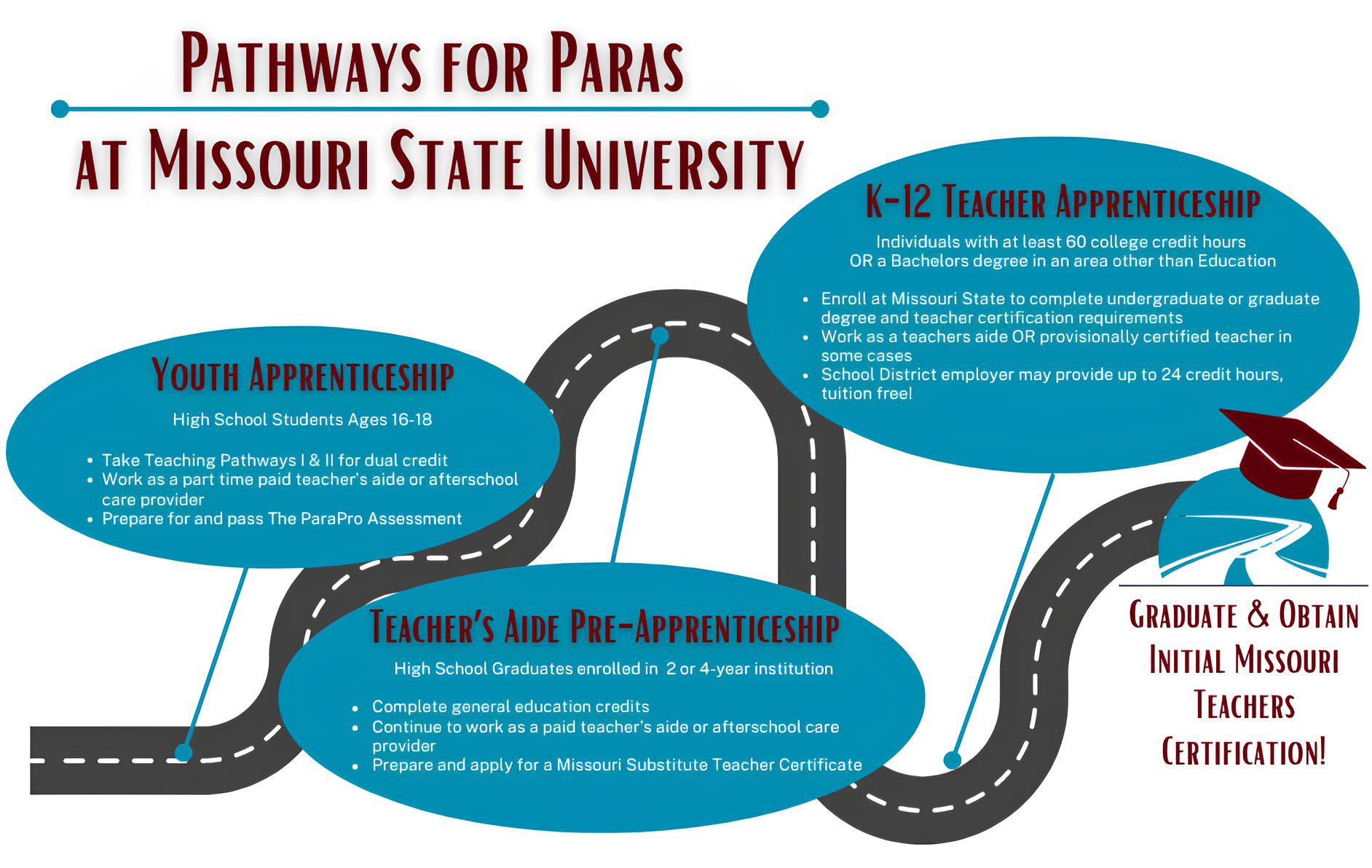
Missouri State's Pathway
Apprenticeship Roles
| Registered Youth Apprenticeship |
The Registered Youth Apprenticeship in teacher education offers an innovative pathway for aspiring educators by blending real-world teaching experience with formal education. High School students work alongside experienced teachers while completing coursework aligned with state standards. This model provides practical skills, mentorship, and early exposure to the profession, creating a cost-effective, accessible route into teaching. It fosters a diverse, well-prepared teacher pipeline and addresses critical shortages in high-demand areas. Visit with Betty Glasgow for any questions. |
||
| Pre-Apprenticeship |
Pre-apprenticeship in education prepares high school students or aspiring educators for full apprenticeship and teaching careers. It combines classroom instruction, mentorship, and hands-on experience, offering early exposure to the profession. By building key skills and aligning with apprenticeship standards, it creates a clear pathway toward a teaching career. Find more information at Agency for Teaching, Leading, and Learning |
||
| Registered Apprenticeship | A registered apprenticeship for teachers is a formal, work-based training program that allows aspiring educators to earn while they learn. Participants gain hands-on teaching experience under the guidance of experienced mentors, while also completing coursework aligned with state education standards. This pathway provides a structured approach to teacher preparation, offering practical skills, mentorship, and professional development. By combining on-the-job training with academic learning, the apprenticeship helps develop highly qualified teachers and addresses critical shortages in the education field. | ||
Process for Establishing Educator Apprenticeships
1. Enrollment |
Training Provider: Registered Apprenticeship Sponsor: |
|||
2. Training and Tracking |
Training Provider: Registered Apprenticeship Sponsor: |
|||
3. Completion and Credentials |
Training Provider: Registered Apprenticeship Sponsor: |
|||
Apprenticeship Track Potential Salaries
| Education Credentials | Average Annual Salary | Description | ||||
| Bachelor's in Special Education | $50,000 to $60,000 | Teach academic, social, and life skills to students with learning, emotional, or physical disabilities. | ||||
| Bachelor's in Elementary Education | $45,000 to $55,000 | Teach academic and social skills to students at the elementary school level. | ||||
| Bachelor's in Early Childhood Education | $40,000 to $50,000 | Teach academic and social skills to students at kindergarten - 3rd grade level. | ||||
| Master's in Special Education with Initial Certification | $55,000 to $65,000 | Teachers with specialized knowledge of students with learning, emotional, or physical disabilities. | ||||
| Master's in Special Education with Emphasis on Deaf or Hard of Hearing | $55,000 to $70,000 | Teachers with specialized knowledge in deaf and hard-of-hearing education. | ||||
| Master's in Education with Initial Certification | $50,000 to $60,000 | This could be for a teacher transitioning into the classroom with an advanced degree but initial certification. | ||||
| Master's in Higher Education and Student Affairs | $55,000 to $70,000 | This is more typical for roles in higher education administration or student services rather than K-12 teaching. | ||||
| Master's in Education and Principal Certification | $75,000 to $90,000 | Teachers with principal certification usually transition into school leadership roles. | ||||
| Master's in Education with Special Education Director Certification | $80,000 to $100,000 | A Special Education Director oversees special education programs. | ||||
| Specialist Degree in Education with Superintendency Certification | $100,000 to $130,000 | Superintendents serve as the highest-level administrators in school districts. | ||||
Funding Opportunities
Securing funding is essential for the successful implementation and sustainability of registered teacher apprenticeship programs. These programs provide aspiring educators with hands-on training while addressing critical teacher shortages. A variety of funding opportunities exist to support these initiatives, ranging from federal and state grants to public-private partnerships. Below are key funding sources that can help expand and strengthen teacher apprenticeships, ensuring equitable access to quality education and professional development.
- U.S. Department of Labor Apprenticeship Grants: Federal funding aimed at supporting Registered Apprenticeship Programs (RAPs), including those in education.
- Workforce Innovation and Opportunity Act (WIOA): Provides funding through local workforce development boards to support apprenticeships in education and other industries.
- Missouri Fast Track Workforce Incentive Grant: State-funded initiative supporting tuition and fees for individuals pursuing high-demand jobs, including education apprenticeships.
- Teacher Quality Partnership (TQP) Grants: Federal grants designed to strengthen teacher preparation programs through partnerships between higher education and K-12 schools, which can include apprenticeship models.
- Local or State Education Agencies (LEA/SEA) Grants: Funding opportunities from local or state government bodies aimed at workforce development and education initiatives.
- Apprenticeship Building America (ABA) Grants: Federal initiative to expand apprenticeship programs, including those in education, with a focus on promoting diversity and equitable access.
- Public-Private Partnerships: Collaborative funding from businesses, foundations, and community organizations invested in improving the teacher pipeline through apprenticeships.
